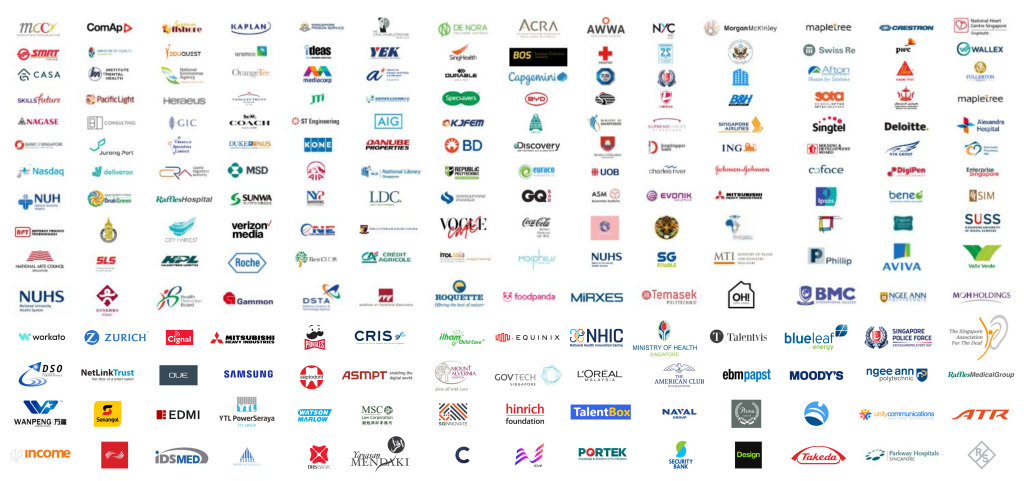Crisis Leadership Training Course in Botswana
Our Leadership Courses in Botswana is also available in Gaborone (the capital city), Francistown, Molepolole, Serowe, Maun, Kanye, Mahalapye, Lobatse, Mochudi, Palapye, Selibe-Phikwe, Ramotswa, Thamaga, Tonota, Letlhakane, Orapa, Ghanzi, Shakawe, Tlokweng, Jwaneng, Kasane, Ramotswa, Lobatse, Orapa, Sowa, Mogoditshane, Tlokweng, Palapye, Mochudi, Tshabong, Kasane, Maun, Ghanzi, Shakawe, Jwaneng.
In the face of adversity, the true mettle of leadership is tested. Nowhere is this more evident than in the dynamic landscape of Botswana, where unforeseen crises can challenge even the most seasoned leaders. The “Crisis Leadership Training Course in Botswana” emerges as a beacon of resilience, offering a transformative journey for leaders seeking to navigate turbulent waters with confidence and efficacy.
In today’s fast-paced world, crises can strike unexpectedly, posing imminent threats to organisations and communities alike. Whether it’s a natural disaster, a financial downturn, or a public health emergency, the ability of leaders to respond swiftly and decisively is paramount. The Crisis Leadership Training Course in Botswana is meticulously crafted to equip leaders with the skills and mindset needed to thrive amidst chaos, transforming adversity into opportunity.
Participants will delve into the intricacies of crisis management, exploring proven strategies and best practices for effective leadership during turbulent times. From crisis communication to decision-making under pressure, this course provides a comprehensive toolkit to guide leaders through the storm. Through immersive simulations, case studies, and real-world scenarios, participants will emerge not only as competent crisis managers but as catalysts for resilience and renewal in Botswana.
In a country known for its resilience and spirit of community, the importance of crisis leadership cannot be overstated. The Crisis Leadership Training Course in Botswana offers a platform for leaders to hone their abilities, fostering a culture of preparedness and empowerment. Join us on this essential journey and become a beacon of hope and strength in times of crisis, with the Crisis Leadership Training Course in Botswana leading the way.
Who Should Attend this Crisis Leadership Training Course in Botswana
Amidst the unpredictable landscape of Botswana, the need for effective crisis leadership has never been more pressing. The “Crisis Leadership Training Course in Botswana” emerges as a vital resource for leaders across sectors, providing them with the tools and strategies necessary to navigate tumultuous times with resilience and agility. This course serves as a beacon of hope and empowerment, empowering leaders to not only weather the storm but emerge stronger and more capable than before.
In a world marked by volatility and uncertainty, crises can manifest in various forms, from natural disasters to economic downturns and public health emergencies. Leaders who possess the skills to respond swiftly and decisively are indispensable in such moments of upheaval. The Crisis Leadership Training Course in Botswana is tailored to equip individuals from diverse backgrounds, including corporate executives, government officials, non-profit leaders, and community activists, with the knowledge and expertise needed to lead effectively in times of crisis.
Participants in this course will embark on a transformative journey, delving into the principles of crisis management, communication, and decision-making under pressure. Through interactive workshops, case studies, and simulations, they will learn to anticipate, mitigate, and manage crises effectively, safeguarding the interests of their organisations and communities. Join us as we embark on this essential endeavour, with the Crisis Leadership Training Course in Botswana paving the way towards a future marked by resilience and preparedness.
- Executives
- Team Leaders
- Entrepreneurs
- Educators
- Recent Graduates
Course Duration for Crisis Leadership Training Course in Botswana
The “Crisis Leadership Training Course in Botswana” offers flexible training durations to accommodate varying schedules and needs. Participants can opt for a comprehensive 3 full-day programme to delve deeply into crisis leadership principles and strategies. Alternatively, shorter options such as a 1-day session, half-day workshop, or concise 90-minute or 60-minute modules are available for those seeking a more condensed but impactful learning experience. Whatever the duration, the Crisis Leadership Training Course in Botswana ensures that leaders are equipped to navigate crises with confidence and competence.
- 2 Full Days
- 9 a.m to 5 p.m
Course Benefits of Crisis Leadership Training Course in Botswana
The “Crisis Leadership Training Course in Botswana” equips leaders with the skills and strategies needed to effectively navigate and manage crises, fostering resilience and ensuring organisational preparedness.
- Enhanced crisis management capabilities
- Improved decision-making under pressure
- Enhanced communication skills during crises
- Increased resilience and adaptability
- Strengthened organisational reputation
- Greater ability to mitigate risks
- Enhanced team cohesion and morale during crises
- Improved stakeholder engagement and trust
- Enhanced strategic planning for crisis response
- Greater confidence in leading through turbulent times
Course Objectives for Crisis Leadership Training Course in Botswana
The “Crisis Leadership Training Course in Botswana” aims to equip leaders with the knowledge and skills necessary to effectively lead and manage crises. By completing the course, participants will be prepared to navigate turbulent situations with confidence and resilience.
- Develop a comprehensive understanding of crisis management principles
- Cultivate effective decision-making strategies during crises
- Enhance crisis communication skills across various channels
- Foster a culture of resilience and adaptability within the organisation
- Implement strategies to safeguard and enhance the organisation’s reputation during crises
- Identify potential risks and vulnerabilities and develop mitigation plans
- Strengthen team cohesion and morale to withstand crisis pressures
- Engage stakeholders proactively and build trust and confidence
- Develop and implement strategic crisis response plans
- Enhance leadership confidence and competence during crises
- Foster collaboration and coordination across departments during crises
- Evaluate and learn from past crises to improve future response efforts
Course Content for Crisis Leadership Training Course in Botswana
The “Crisis Leadership Training Course in Botswana” covers a comprehensive range of topics designed to equip leaders with the skills and strategies necessary to effectively navigate and manage crises. Participants will explore various aspects of crisis management, decision-making, communication, and organisational resilience, tailored specifically to the context of Botswana.
- Develop a comprehensive understanding of crisis management principles
- Examine the stages of crisis management, from prevention to recovery.
- Explore different types of crises and their potential impacts on organisations.
- Analyse case studies of successful crisis management strategies.
- Cultivate effective decision-making strategies during crises
- Learn how to make timely and informed decisions under pressure.
- Understand the role of risk assessment and scenario planning in decision-making.
- Practice prioritising actions and resources during crisis situations.
- Enhance crisis communication skills across various channels
- Learn how to communicate effectively with internal and external stakeholders during crises.
- Explore strategies for managing media relations and public perception during crises.
- Develop protocols for clear and timely communication within the organisation.
- Foster a culture of resilience and adaptability within the organisation
- Understand the importance of resilience in navigating and recovering from crises.
- Cultivate a mindset of adaptability and flexibility among team members.
- Implement strategies for organisational learning and continuous improvement.
- Implement strategies to safeguard and enhance the organisation’s reputation during crises
- Understand the impact of crises on organisational reputation and brand equity.
- Develop proactive measures to protect and enhance the organisation’s reputation.
- Implement crisis communication plans that mitigate reputational damage.
- Identify potential risks and vulnerabilities and develop mitigation plans
- Conduct risk assessments to identify potential threats and vulnerabilities.
- Develop mitigation strategies and contingency plans for high-risk scenarios.
- Implement monitoring and evaluation systems to track and address emerging risks.
- Strengthen team cohesion and morale to withstand crisis pressures
- Build trust and camaraderie among team members through effective leadership.
- Implement strategies for managing stress and promoting well-being during crises.
- Foster a sense of purpose and unity in achieving common goals during crises.
- Engage stakeholders proactively and build trust and confidence
- Identify key stakeholders and their roles in crisis management and response.
- Develop communication strategies to engage stakeholders before, during, and after crises.
- Build relationships of trust and credibility through transparent and honest communication.
- Develop and implement strategic crisis response plans
- Develop comprehensive crisis response plans that align with organisational goals and priorities.
- Establish clear roles, responsibilities, and communication channels within the crisis response team.
- Conduct regular drills and simulations to test the effectiveness of crisis response plans.
- Enhance leadership confidence and competence during crises
- Build self-awareness and emotional intelligence to lead with resilience and empathy.
- Develop leadership skills for motivating and inspiring teams during crises.
- Gain confidence in making tough decisions and leading with conviction during challenging times.
- Foster collaboration and coordination across departments during crises
- Break down silos and foster cross-functional collaboration for effective crisis response.
- Establish communication protocols and coordination mechanisms among departments.
- Develop a culture of teamwork and mutual support to address complex challenges collaboratively.
- Evaluate and learn from past crises to improve future response efforts
- Conduct post-crisis debriefs and evaluations to identify lessons learned and areas for improvement.
- Develop mechanisms for capturing and sharing best practices and success stories.
- Implement a culture of continuous learning and adaptation based on insights from past crises.
Upcoming Course and Course Brochure Download for Crisis Leadership Training Course in Botswana
Stay informed about upcoming updates and avail brochures for the “Crisis Leadership Training Course in Botswana” by subscribing to our mailing list. Our brochures offer detailed insights into the course content, objectives, and testimonials from past participants, providing you with a comprehensive overview of what to expect. Keep an eye out for new developments and resources to enhance your crisis leadership skills through the “Crisis Leadership Training Course in Botswana.”

